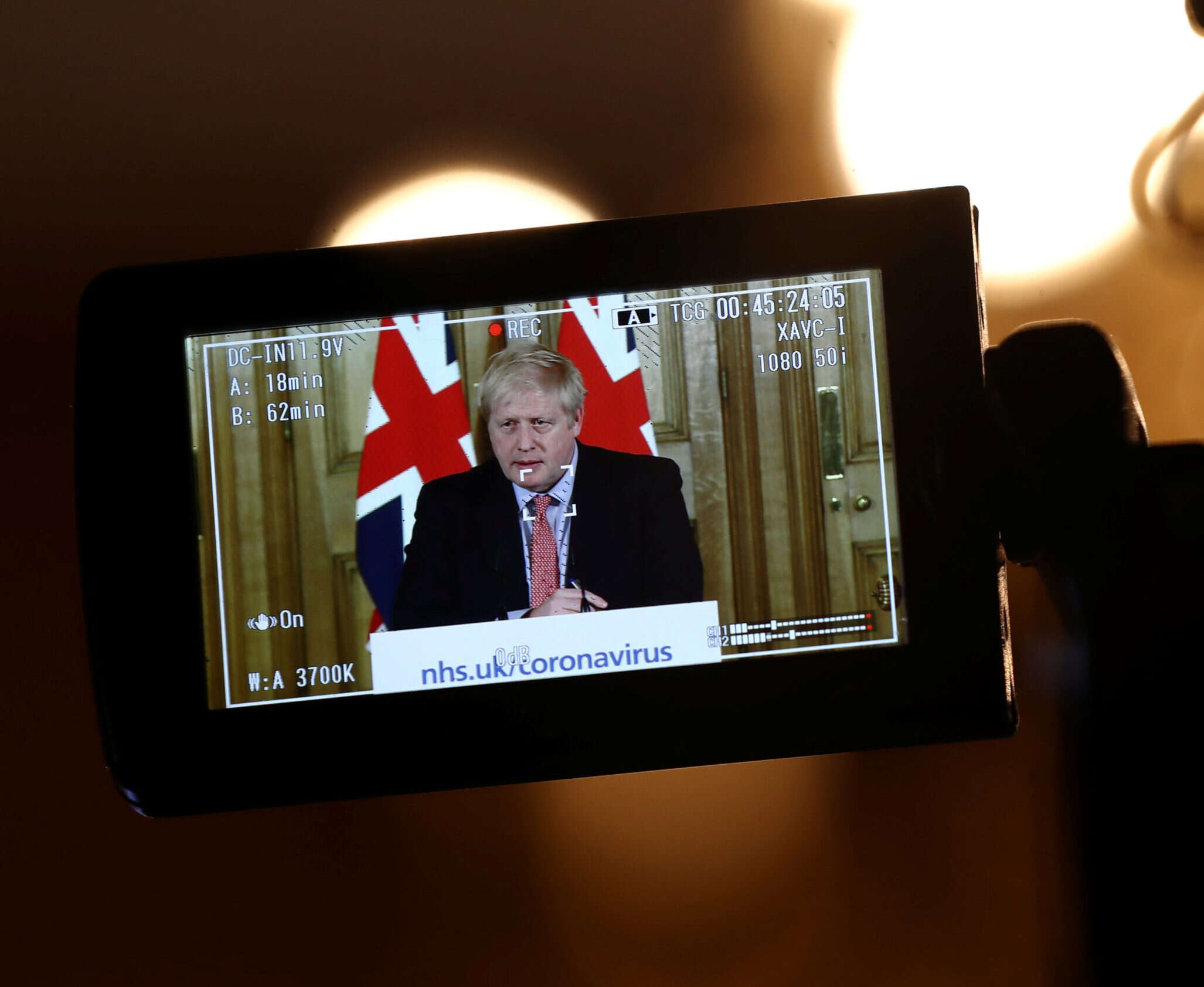
Citizens of the UK, US and several other countries are putting their trust in governments and public bodies ahead of journalists for coronavirus news, an international study suggests.
Governments ranked as the most trusted source of Covid-19 news in ten out of 17 countries in the survey. Health organisations came top in two. Broadcasters, which are more traditional sources of news, ranked top in the other five.
The findings of the study appear to back a recent Sky News/ YouGov survey, which found that the British public has more trust in the NHS, Civil Service and several politicians, including PM Boris Johnson, than journalists when it comes to Covid-19.
The international study, conducted by Global Web Index (GWI) between 31 March and 2 April, found that British participants had below-average trust in broadcasters, news websites and newspapers (see chart below).
But the GWI survey also shows that the UK public is far from alone in ranking its government ahead of the media for Covid-19 news.
Most trusted Covid-19 news sources by nation
| Nation | Most trusted news source | % of survey participants who ranked as one of most trustworthy sources |
| Australia | Government updates |
57% |
| Brazil | Updates from health organisations |
45% |
| Canada | Government updates |
54% |
| China | Government updates |
55% |
| France | News bulletins on TV |
39% |
| Germany | News bulletins on TV |
51% |
| India | Government updates |
58% |
| Ireland | Government updates |
55% |
| Italy | News bulletins on TV |
68% |
| Japan | News channels of TV |
29% |
| New Zealand | Government updates |
72% |
| Philippines | Government updates |
59% |
| Singapore | Government updates |
69% |
| South Africa | Government updates |
59% |
| Spain | News channels of TV |
38% |
| UK | Government updates |
47% |
| US | Updates from health organisations |
42% |
For the trust part of the study, participants were asked, “Which [of the listed] sources do you think are the most trustworthy for news about coronavirus?” They were able to tick as many options as they wanted.
Some 47 per cent of UK participants chose “government updates”, making it the most popular choice.
The next most popular choice in the UK was “news channels on TV”, with 39 per cent (below the global average of 44 per cent), then “news bulletins on TV”, with 31 per cent (slightly below the global average of 32 per cent). News websites were ranked fourth, and newspapers came seventh, behind health organisations and the radio.
UK ranking of most trusted sources
| Source | UK respondents who identified as one of the most trustworthy news sources | Average across 17 nations |
| Government updates |
47% |
49% |
| News channels on TV |
39% |
44% |
| News bulletins on TV |
31% |
32% |
| News websites |
30% |
32% |
| Updates from health organisations |
30% |
34% |
| Radio |
13% |
10% |
| Newspapers |
11% |
16% |
| Social media |
7% |
14% |
| Conversations with friends/ family |
7% |
11% |
| Updates from employers/ workplaces/ schools |
7% |
8% |
| Other |
4% |
3% |
| Podcasts |
4% |
4% |
| Updates from brands |
3% |
6% |
| Group chats on messaging services (e.g. WhatsApp) |
3% |
8% |
Another part of the survey asked participants to list the sources they use to keep up-to-date with coronavirus news.
The results of this question ranked news channels on TV top, with 60 per cent of participants using them to follow Covid-19 news. It was also top in the UK, with 51 per cent.
News websites were second globally (55 per cent) and in the UK (49 per cent). Government updates came in third, with 50 per cent internationally and 47 per cent in the UK.
Report methodology from GlobalWebIndex:
“All stats in this report are from a GlobalWebIndex custom recontact survey among 1,053 (Australia), 1,014 (Brazil), 785 (Canada),
1,014 (China), 1,084 (France), 1,066 (Germany), 1,035 (India), 473 (Ireland), 1,075 (Italy), 784 (Japan), 540 (New Zealand), 765
(Philippines), 776 (Singapore), 361 (South Africa), 1,107 (Spain), 1,107 (UK) and 1,040 (U.S.A.) internet users aged 16-64.
“We looked to collect 1,000, 750 or 500 responses per country, allowing us to be in-field for the shortest possible time and bring the
results to you as quickly as possible. We fell a little short of these desired targets in South Africa and Ireland, but decided to close
fieldwork anyway in order to ensure a quick speed of release.”
Picture: Reuters/Simon Dawson/Pool
Email pged@pressgazette.co.uk to point out mistakes, provide story tips or send in a letter for publication on our "Letters Page" blog
